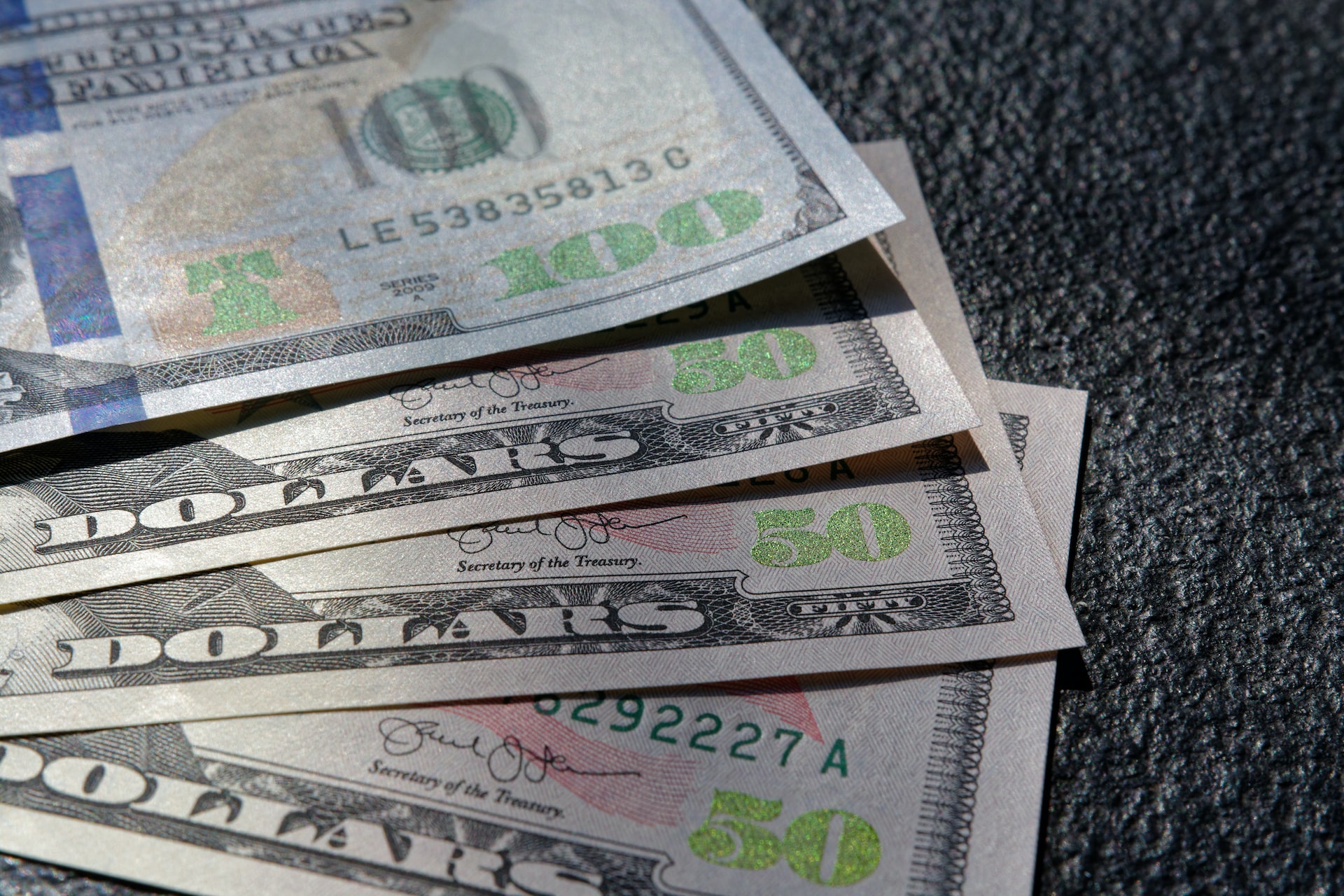Money frequently exchanges hands as people buy goods and services. Money circulates throughout the global economy in different formats. We have over 150 official currencies, and people can send and receive payments through credit cards, debit cards, paper cash, checks, and other methods. You may come across someone who pays you with a money order. This payment method hasn’t seen as much use ever since travelers’ checks peaked before credit cards and debit cards stole their spotlight. However, this payment method may come up. Want to know if you can cash a money order or make one yourself? We will share the details.
What are Money Orders, and How Do They Work?
Money orders are an older payment method that was popular before traveler’s checks. American Express issued the first money orders in 1882, giving people a more convenient payment option. Money orders are essentially prepaid checks. Your payment for the money order becomes the balance. Money orders have a $1,000 limit, which doesn’t give you much room, but you can get multiple money orders to exceed the limit.
When Should You Use a Money Order?
A money order is a prepaid check which protects you from a bounce. This safeguard is more important for people who have low funds in their checking accounts. If you receive a money order, you should primarily use it with the company that gave you the money order. This is because you can get lower fees or pay nothing on the transactions. For instance, the U.S. Postal Service does not charge fees if you cash out a money order you received from them. In other cases, you would have to pay a fee to use your money order. A money order also helps when you do not want to provide personal information. Unlike a check, a money order does not contain any of your personal details.
Pros and Cons of Using a Money Order
A money order is one of several payment methods you can use. Before using a money order, you should assess the pros and cons to gain a deeper perspective. We have outlined the main advantages and disadvantages below.
Pros:
- Money orders are prepaid: You don’t have to worry about a check bouncing. The person who receives your check may deposit it a few weeks later. You may forget about the check by then and pay an overdraft fee for the bounced funds. The check’s recipient may trust you less after the bounce.
- Money orders do not have personal information: A check contains your name, address, routing number, and bank account number. If you don’t feel comfortable with this information floating around, a money order is the better choice.
- Overseas flexibility: You can cash the money order in a different country. You are not restricted to cashing out the money order in the country where the money order was created.
- You don’t need a bank account: Consumers can obtain money orders even if they do not have checking accounts. On the other hand, if you want to write a personal check, you must have a checking account.
Cons:
- Fees: You may have to pay fees to obtain a money order and cash it out. You can deposit orders into your bank account without paying a fee, but the costs vary based on how you receive and use the money order. Fees are higher if you use a credit card to obtain a money order.
- Delays: Money order proceeds don’t automatically appear in your account after a deposit. You may have to wait several weeks for the money order to process if you use a bank that is different from the money order issuer.
- Money orders have less tracking and are more susceptible to fraud: People use checks in part because you can track if the personal check got cashed. You don’t have the same luxury with money orders. You will have to complete several forms to request tracking, and it can take several weeks to determine if someone cashed out on your money order. Money orders can be fraudulent, so you shouldn’t spend them until the funds make it to your bank account. If you spend the cash on a fraudulent money order, you are responsible for paying the difference with the remaining funds in your bank account.
- The $1,000 maximum doesn’t provide much flexibility: You would have to buy multiple money orders to exceed $1,000. Multiple money orders mean more fees.
- You must purchase a money order in person: You can get checks mailed to your door and conduct online transactions with debit and credit cards. Money orders do not provide an online option. You must visit a retailer, bank, or post office that offers money orders.
How Much Does a Money Order Cost?
Money order costs vary by provider and how much you borrow. Requesting more money can get you closer to a $2 fee, but asking for a small money order at the right provider can keep fees down to $0.35. The USPS has the following price structure:
- Money orders from $0.01 to $500: $1.45 fee
- Money orders from $500.01 to $1,000: $1.95 fee
- Postal Military Money Orders only have a $0.50 fee
- International money orders have a $10.50 issuing fee and a processing fee based on their intended destination
Financial institutions may charge more than USPS unless you have a checking account with them. If you need to convert over $1,000 into money orders, you would have to create multiple money orders and pay separate fees for each one.
How Long Is a Money Order Good For?
Have you ever found an old check and discovered it expired? It’s a frustrating feeling, but you won’t have to worry about it with money orders. A money order does not have an expiration date. You can take a money order you received a decade ago and cash it out today. Rules can change at any time, but right now, a money order does not expire. It always holds the intrinsic value until you cash it out.
Can You Cash a Money Order?
Money orders have been around for over a century, and you can still cash them to this day. You can visit your local USPS branch or bank to cash out your money order. Some retailers and grocery stores even offer this option, including Walmart. You can cash out your money order at your local Walmart and even buy a money order at Walmart. You can visit Walmart’s Customer Service Desk or Money Services Center to buy or cash a money order.
How to Cash a Money Order
The prices for cashing out a money order are similar to cashing out a check. These are the steps you’ll have to take.
Step 1: Endorsing the Money Order
You have to sign your name on the back of the money order. Every money order has a brief form at the top of the check’s back.
Step 2: Visiting a Cash Check Store or a Bank
Many stores, banks, and credit unions let you process money orders. You will have to find a location near you. You can get a money order fulfilled at a bank even if you aren’t a customer.
Step 3: Presenting a Valid ID
Companies that accept money orders will verify your identity before giving you the cash. They will check the back of your money order and make sure the endorsement aligns with your ID. You will have to provide a government-issued photo ID.
Step 4: Paying the Processing Fees
The size of the money order and where you process the order determines your fee. Depending on those factors, this cost can get as high as $5. Some companies like Walmart keep money order fees low. The most you’ll have to pay at Walmart is $1 for a money order processing fee.
Step 5: Receiving Your Cash
The company, bank, or credit union will then give you the cash from your money order minus the processing fee. At this point, you have completed the process and can use the cash for anything that you desire.
Places to Cash a Money Order
You can cash out a money order at several locations. Be extra careful when buying a money order from someone. Some scammers provide fake money orders to steal people’s money. These are some of the trustworthy companies to work with:
Banks and Credit Unions
These financial institutions are a good option for people who want to cash out their money orders. Fees vary for each of these firms, but they offer a straightforward process. You do not have to be a bank customer to cash out your money order from them.
Check-Cashing Stores
These stores are spread across the country and make it easy to cash your checks.
Retail Stores
You can cash your money orders at many convenience stores. If you pursue this route, you can choose from many retail locations across the United States.
Money Order Issuer
Companies that issue money orders can also help out if you want to cash out your check.
Post Office
The U.S. Post Office offers several services, including cashing money orders. You can cash out a domestic money order while shipping a delivery. The USPS has more than 30,000 locations throughout the United States, which will make it easier to find a location.
Another Alternative: Mobile Check Deposit
While the options covered earlier can help, there’s a major issue with each of them. You have to drive to a location to cash your check. That can take several minutes or up to half an hour, depending on the proximity of these locations. Your ability to cash checks also depends on whether these establishments are open.
However, there’s a way to cash your money order even if it’s 3 a.m. Mobile check deposit is available 24/7 and lets you cash your check just by taking a picture of both sides of the document. Once the bank verifies and clears the check, the funds will be deposited in the account of your choice. Cashing a money order using a mobile check deposit is a convenient way to access funds without needing to visit a bank or check-cashing service.
FAQs About How to Cash a Money Order
Yes. It is possible to deposit a money order into your bank account. You have to specify the bank account number when you are endorsing the back of the check. You can also visit your local branch if your bank has nearby properties.
If no one will cash your money order, you can opt for a mobile check deposit.







